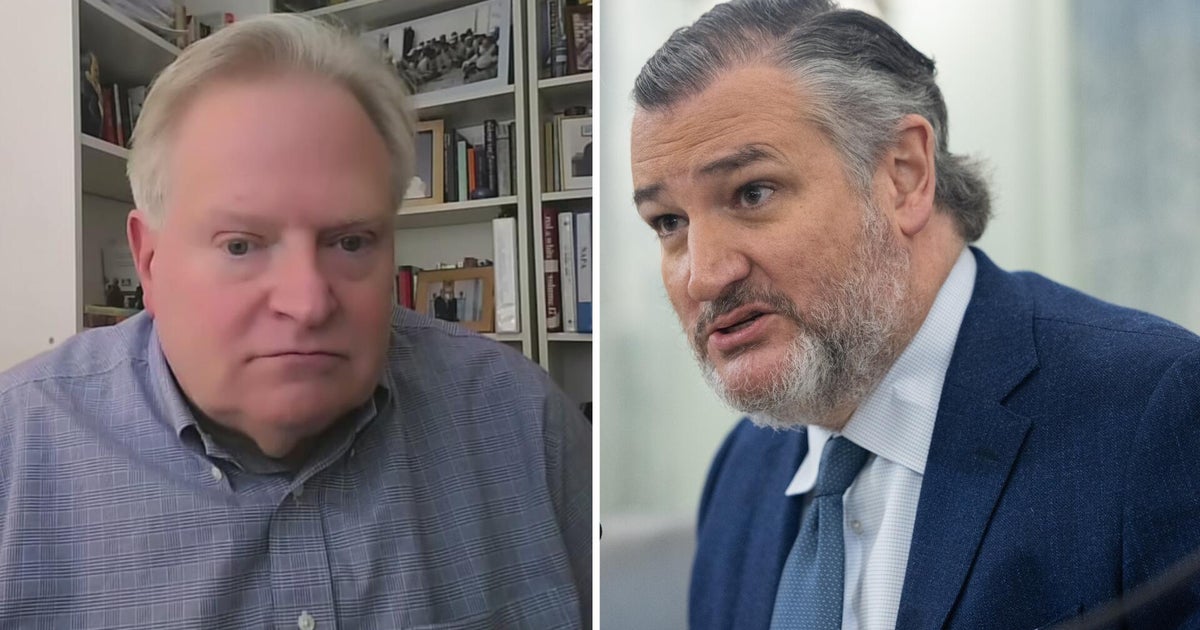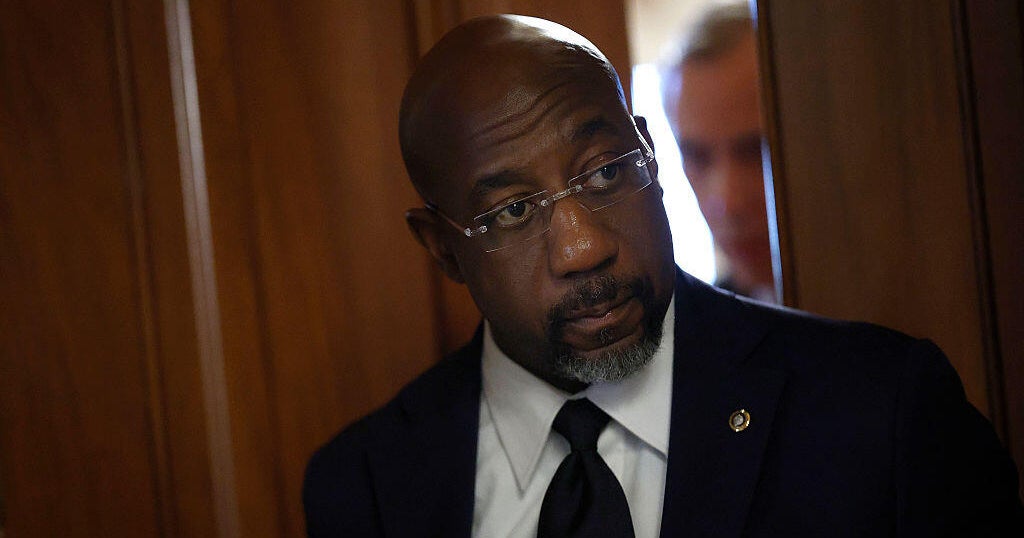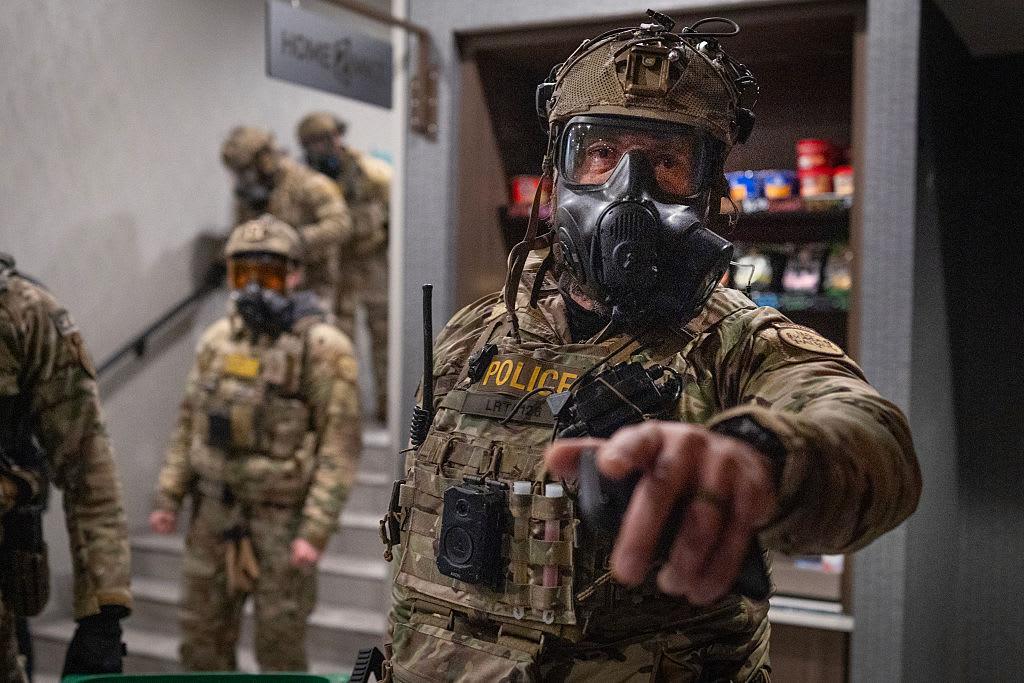Transcript: Sen. Angus King on "Face the Nation," Nov. 25, 2018
The following is a transcript of the interview with independent Sen. Angus King of Maine that aired Sunday, Nov. 25, 2018, on "Face the Nation."
MARGARET BRENNAN: We turn now to Senator Angus King. He's an independent from Maine who caucuses with the Democrats and he's on both the Intelligence and Armed Services Committees. Senators- Senator, thank you for joining us today.
SENATOR ANGUS KING: Pleasure.
MARGARET BRENNAN: In your role on Armed Services, you will be looking in some way at what's happening with the use of U.S. troops at the border. We saw this week that White House chief of staff John Kelly signed an order here that seemed to loosen the restrictions on military personnel and what they do at the Southwest border allowing to engage in some form of law enforcement or some form of lethal- lethal force. That was the phrase used by the president. What exactly are U.S. troops being asked to do?
SEN. KING: Well the way you asked the question indicated the gray area that we're in, because there's an ancient law going back 150 years- posse comitatus, no use of federal troops for law enforcement. It gets gray when you get to the border. Now if indeed there was an invasion, which there isn't, clearly we can defend ourselves. I mean, that's one of the reasons you have a military but using troops in a border situation with asylum seekers is- is I think not appropriate. If they're being used in support, you know President Obama sent people down to support the- the border customs and border patrol but all the indications are this was an overreaction. The president said in a quote I think you had in your lead in there. "There are 500 bad criminals." I've never seen any evidence of that. I haven't heard any evidence of that. I think if that's the case clearly it's something we need to take account of. But the question is can we use force at the border. It seems to be inappropriate unless there is some serious provocation which so far doesn't seem to be the case.
MARGARET BRENNAN: Are you going to put questions to the defense secretary or to the administration about clarifying this?
SEN. KING: Yes I'm hoping through the- through the Armed Services Committee to be able to look into not only what the rule is - what the what the rules of engagement are that the Defense Department issues. Also I want to know how much this is costing. Estimates range from 75 million to a couple of hundred million dollars for something which by all accounts doesn't seem to be necessary.
MARGARET BRENNAN: What is the timeline for this deployment? I mean- December some have- have said is what the Homeland Security Agency has indicated could be the end date. But Mattis was not that clear.
SEN. KING: What I heard- I heard it- I heard an end date of December 15th, but I don't think there's any clear answer to that. The- the- again the question is what was the necessity here. We have a very strong border security in terms of Customs and Border Patrol. Do we need- did we need these extra troops was there any indication? And what is that- as you say what are the rules of engagement? What is the cost and how long is it going to be there? And I think those are all important questions that the Armed Services Committee is going to want to look into. If you're talking about 200 million dollars, that's a lot of money if the justification isn't there.
MARGARET BRENNAN: You also are on the Intelligence Committee which means you're one of the few elected officials who was briefed by the CIA on their assessment of what happened with Washington Post journalist Jamal Khashoggi. I know you can't divulge classified information but the president has said that the intel community doesn't have conclusions they just have feelings. Is it that murky?
SEN. KING: Well the- the first- my first response to that is the CIA doesn't do feelings. They do assessments and they do assessments based upon intelligence from all sources and we did have a comprehensive briefing just before the Thanksgiving break on this issue by the CIA. That's all I'm going to tell you. I cannot talk about what happened in that briefing. I can talk about information that's available in the public record about what's going on and I think one of the most interesting documents produced in public was by the Treasury Department on November 15th where they sanctioned 15 Saudis and they listed why they did it which was involvement in this incident and the- Qahtani, the-the lead guy, is the top person to to the to Mohammed bin Salman he's the-he's the next in line. And there's a tweet from him last summer that said "I don't do things without instructions. I work for the king and the prince." Now you don't have to be the CIA to put things together and say how could this have happened without the Prince being involved. It just- he's in total control. And you know we're not going to find an email that says don't forget the bone saw, but it was pretty clear without reference to what we heard in that briefing.
MARGARET BRENNAN: Now the- President Trump is not the first American president to face this decision, the tradeoff between U.S. national security interests and human rights concerns when it comes to Saudi Arabia. But this is a very in your face case here with this murder of this journalist. Do you think that to send a clear message, you have to go beyond those individuals named in the sanctions? That you do have to directly in some way punish the crown prince based on what has been reported to be the CIA's assessment that he did play some role--
SEN. KING: --and what is publicly reported and what is known. Yes. And I think that the statement that came from the White House last week was it was amazing because it made it sound easy. It basically said we've got an important relationship with Saudi Arabia, therefore we're going to turn a blind eye to this. It's not that easy and again going back to the Treasury Department they-they have this long paragraph about how this is a violation of American values. It undermines our credibility abroad. All of these things. I wish the president had read that before he made this statement that said this is you know they're an important ally and therefore we're going to stand with them. He made it sound easy. We do have to make these difficult decisions. But so far what they're doing is giving a pass to this guy. And I think it gives a pass to dictators around the world. That's the danger. It undermines our authority and the authority of our values across the planet.
MARGARET BRENNAN: Senator thank you very much for being here in studio. Always good to talk to you. We'll be back in one minute with Vermont Senator Bernie Sanders. So stay with us.



